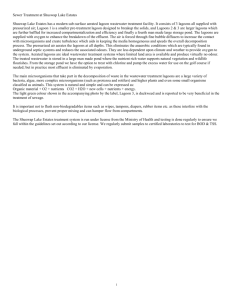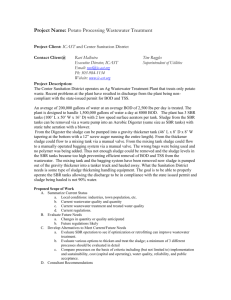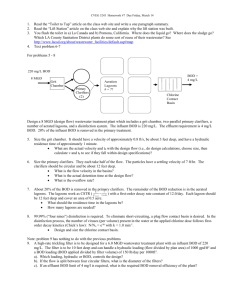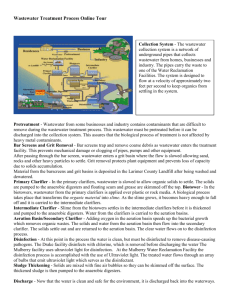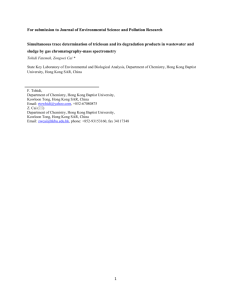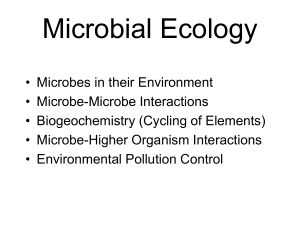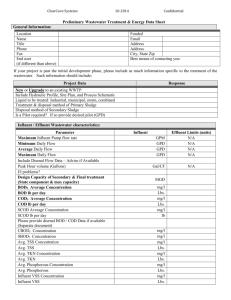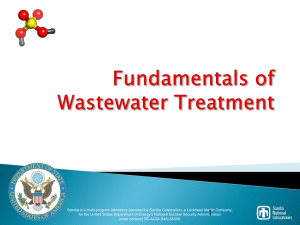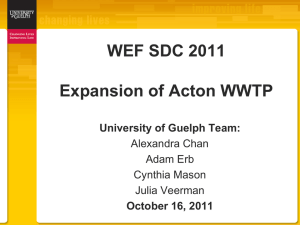te maxson wastewater treatment plant
advertisement
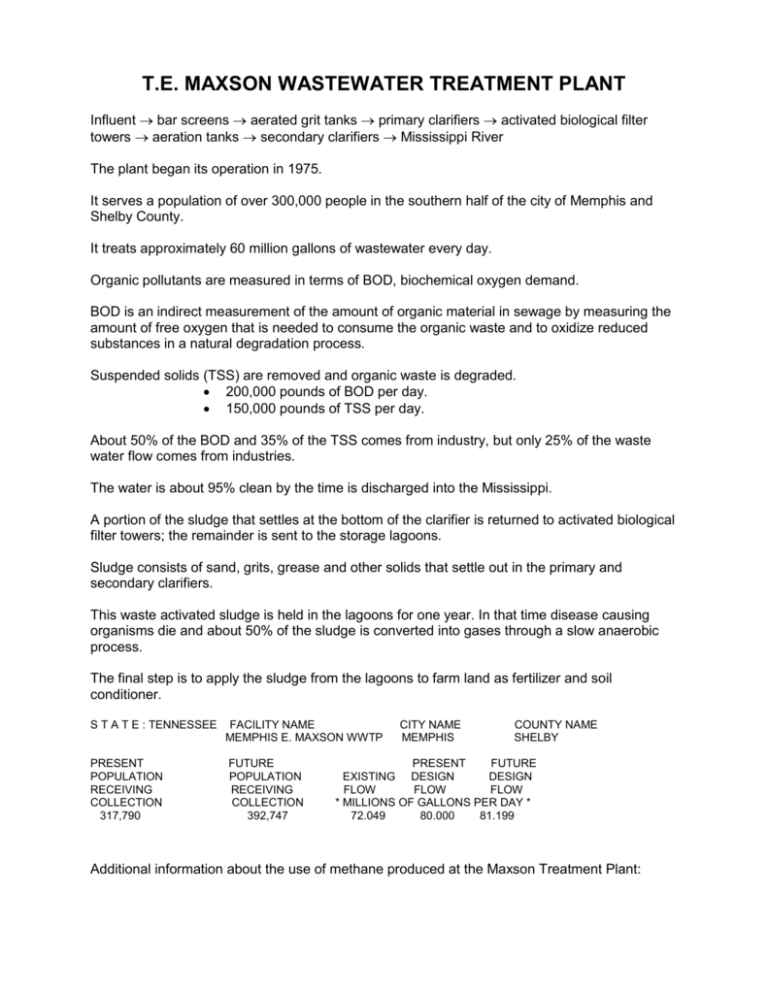
T.E. MAXSON WASTEWATER TREATMENT PLANT Influent bar screens aerated grit tanks primary clarifiers activated biological filter towers aeration tanks secondary clarifiers Mississippi River The plant began its operation in 1975. It serves a population of over 300,000 people in the southern half of the city of Memphis and Shelby County. It treats approximately 60 million gallons of wastewater every day. Organic pollutants are measured in terms of BOD, biochemical oxygen demand. BOD is an indirect measurement of the amount of organic material in sewage by measuring the amount of free oxygen that is needed to consume the organic waste and to oxidize reduced substances in a natural degradation process. Suspended solids (TSS) are removed and organic waste is degraded. 200,000 pounds of BOD per day. 150,000 pounds of TSS per day. About 50% of the BOD and 35% of the TSS comes from industry, but only 25% of the waste water flow comes from industries. The water is about 95% clean by the time is discharged into the Mississippi. A portion of the sludge that settles at the bottom of the clarifier is returned to activated biological filter towers; the remainder is sent to the storage lagoons. Sludge consists of sand, grits, grease and other solids that settle out in the primary and secondary clarifiers. This waste activated sludge is held in the lagoons for one year. In that time disease causing organisms die and about 50% of the sludge is converted into gases through a slow anaerobic process. The final step is to apply the sludge from the lagoons to farm land as fertilizer and soil conditioner. S T A T E : TENNESSEE FACILITY NAME MEMPHIS E. MAXSON WWTP PRESENT POPULATION RECEIVING COLLECTION 317,790 FUTURE POPULATION RECEIVING COLLECTION 392,747 CITY NAME MEMPHIS COUNTY NAME SHELBY PRESENT FUTURE EXISTING DESIGN DESIGN FLOW FLOW FLOW * MILLIONS OF GALLONS PER DAY * 72.049 80.000 81.199 Additional information about the use of methane produced at the Maxson Treatment Plant: "Green power" is a generic term used to describe electricity generated from renewable resources, such as the sun, wind or methane gas. Using renewable resources for generation substantially reduces-and often eliminates-the air emissions common with generation from fossil fuels, such as coal or natural gas. Green power is cleaner, better for the environment and helps preserve natural resources. TVA operates a solar generation facility in Memphis, at the BRIDGES building on Fifth Street. This facility generates 26 kW of electricity, enough for 300 blocks of green power. TVA also buys methane gas from Memphis’ Maxson Wastewater Treatment facility and pipes it to the nearby Allen Steam Plant where it is co-burned with coal to generate enough electricity to power more than 3,000 homes. This innovative use of methane gas reduces the facility’s coal consumption by 8,000 pounds annually, improving air quality in the community. Both sources of green power are mixed into MLGW’s electric distribution system and delivered to customers.

